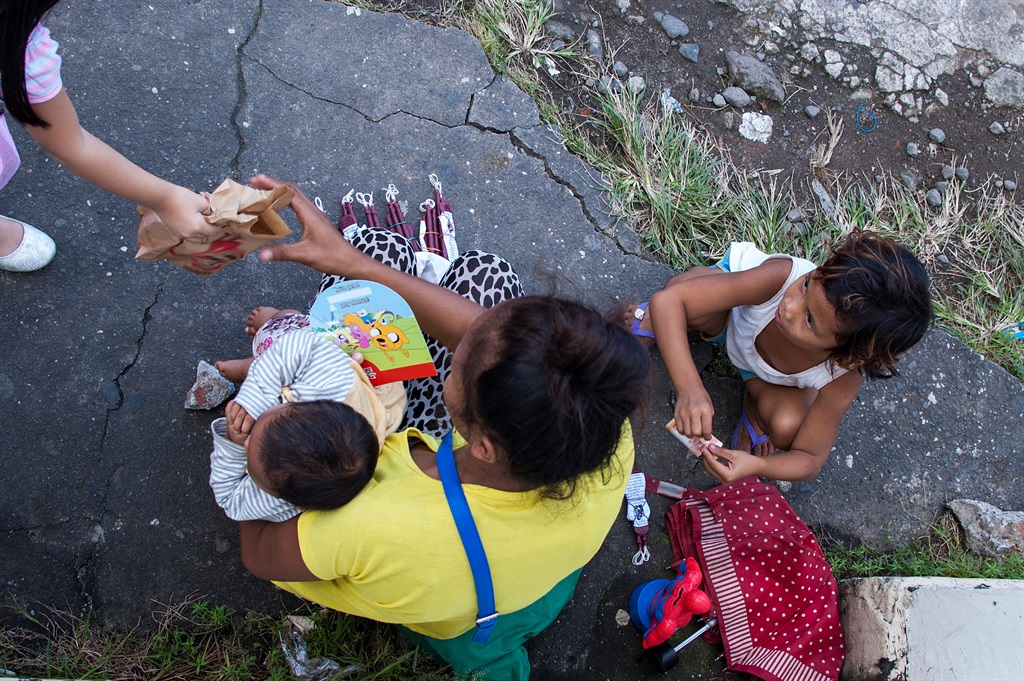
A storm is brewing over the national minimum wage bill.
Trade unions are looking forward to the bill becoming law, but non-profit organisations – especially those representing vulnerable women and children – believe it would be a “crisis”.
As Cosatu on Monday congratulated the president for signing the bill into law, the Commission for Gender Equality requested the bill to be returned to Parliament to be reconsidered.
The gender equality commission’s request follows serious concerns raised by the non-profit sector over the bill’s possible effect on the fate of care workers and other non-profit organisations’ staff.
Despite concerns raised, certain government departments opted to follow a “wait and see” approach to what has been labelled an impending crisis for the non-profit sector, and the women and children depending on its services.
The gender equality commission, in a letter to President Cyril Ramaphosa and ministers of social development (Susan Shabangu) and labour (Mildred Oliphant), requested a meeting to discuss the concerns the non-profit organisation sector raised in a complaint lodged with the gender equality commission earlier this month.
The commission’s chairperson, Lulama Nare, also asked Ramaphosa to send the bill back to Parliament for consultation and consideration.
Nare said care-workers, who were mostly women, “remain invisible because South Africa has not substantially reviewed the burden of unpaid care work on women, more glaringly so in the bill dispensation”.
She labelled the exclusion of care-workers from the protections enjoyed by other workers in the bill as discriminatory.
Care Work Project Manager at the Shukumisa Coalition, Lisa Vetten, told ParlyBeat that the non-profit sector was “highly feminised” with about 70% of the sector being female.
“Once you focus on the care-workers specifically, the percentage is even higher. We have a whole sector that can just be left out, which defeats the purpose of the bill,” Vetten explained. “It is very much also a gender equality issue.”
Vetten said many non-profit organisations had limited resources and departmental funding was often inadequate to cover all operational expenses.
“These organisations are already struggling and many will have to close their doors if they cannot pay staff.”
Vetten also highlighted these challenges in a recent report analysing the costs of running shelters in South Africa. She authored it in partnership with the Hlanganisa Institute for Development South Africa, the National Shelter Movement of South Africa and the Heinrich Boll Stiftung Southern Africa. Shukumisa, a coalition of more than 1500 non-profit organisations providing rape and domestic violence-related care to women and children as well as other social services, recently laid the complaint with the gender equality commission, which prompted it to intervene.
Back in Parliament this week, the concerns over funding and the impact of the bill came up during oral question time for the first time since the bill was passed in August.
Neither Parliament nor the department of social development had done much publically to allay fears of the care-worker sector.
Some MPs in the portfolio committee on social development confirmed that the committee had not yet scheduled the issue for discussion.
Chair of the select committee on economic and business development, Mandla Rayi, told ParlyBeat the matter is “out of [their] hands now” and that the bill allowed for exemptions where employers could not pay the minimum wage.
“We agree with these mechanisms. This is a funding issue, not a labour issue. We encourage the non-profit organisations to work with the social development department towards finding solutions for their funding problems.”
He said non-profit organisations should approach their nearest labour offices should they need help with the online application system for exemption.
When ParlyBeat approached the department of social development for comment on how it intended to tackle this, the department passed the buck by referring all questions to the provincial departments of social development, despite policy issues being the mandate of the national department.
However, on Tuesday, there was nowhere to hide for Shabangu.
IFP MP Liezel van der Merwe asked her what she had done since the start of her term to ensure the department’s subsidies enabled non-profit organisations to comply with the minimum wage.
Van der Merwe said some shelters looking after abused women and children were forced to feed them on R9 a day. In some shelters, staff were paid as little as R600 a month, she said.
“This means your subsidies are forcing shelters to violate labour legislation and women and children are not getting the services they deserve.”
According to Van der Merwe, those imprisoned for committing a crime were treated better – the government spend on a prisoner was up to R350 a day.
Shabangu said the department was aware of these issues.
“The department is currently working on a review of the sector and this will also address issues of funding. We will very soon be able to present to Parliament a policy on shelter reform.”
Shabangu acknowledged that funding to these organisations – especially shelters – was inadequate but reminded MPs of the economic climate and budget constraints.
“We are mindful of this and we are working with others in the private sector to see how we can augment this.”
She also reminded MPs that the minimum wage was not in effect yet.
“It is a process. As soon as it is concluded we will be able to say in what way we are able to comply.”
Social worker and former shelter manager Stephanie Pretorius told ParlyBeat that only two of the 15 shelters providing services to abused women, family and victim-empowerment services were still open in the Free State. The Serobe Crisis Centre she managed closed earlier due to funding constraints.
“We had capacity for 15 women and their children. Our funding from the department amounted to about R20 000 a month. That was barely enough to provide the service. We had women showing up with their children. When women flee, they flee with everything – from the children to the puppies. This means providing services from security to lease payments, utilities, transport to schools and work and basic things like toiletries. Not having the means to properly provide these services is secondary and institutional victimisation.”
Pretorius said it was not just those who they helped who suffered, but also those in charge of care. “Inadequate funding of these organisations are forcing people into servitude. For many of us this is not just a job – it’s our life’s work,” she said.
• This article originally appeared on ParlyBeat, a biweekly digital newsletter aimed at linking policy and oversight processes in Parliament to the lived realities of ordinary people. Follow ParlyBeat on Twitter.




 Publications
Publications
 Partners
Partners








